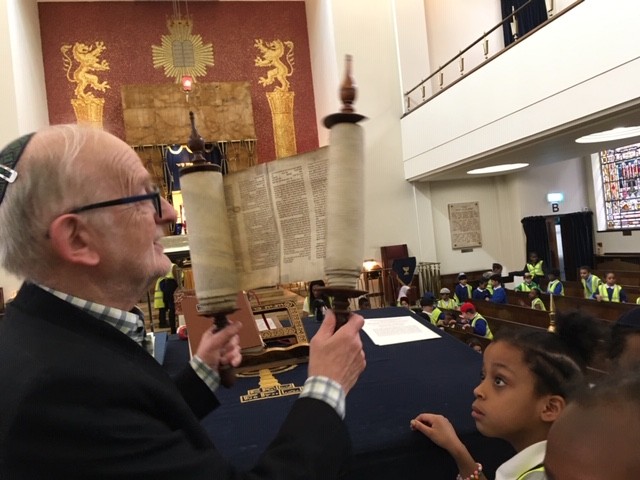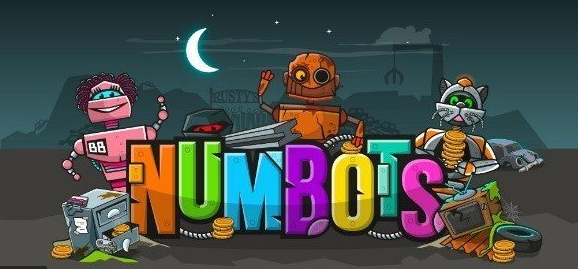At Brentfield, we put learning at the heart of everything we do. We support our children in gaining both the academic and the life skills needed to become effective communicators and successful global citizens.
We believe that language and communication is at the root of all learning and is something to be fostered and developed at all stages. ‘When we change the way we communicate, we change society.’ Clay Shirky
We intend for our children to be confident, passionate writers who are able to write articulately and clearly for a range of purposes: to entertain, to inform, to persuade and to discuss. We intend for our children to express their voice through a range of mediums to share their thoughts and ideas with a variety of audiences.
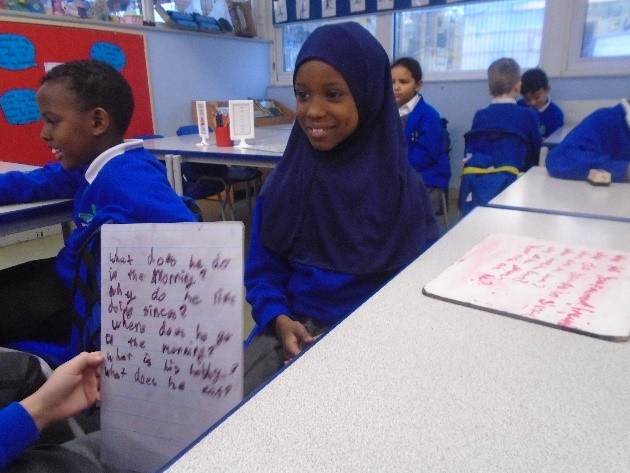 |
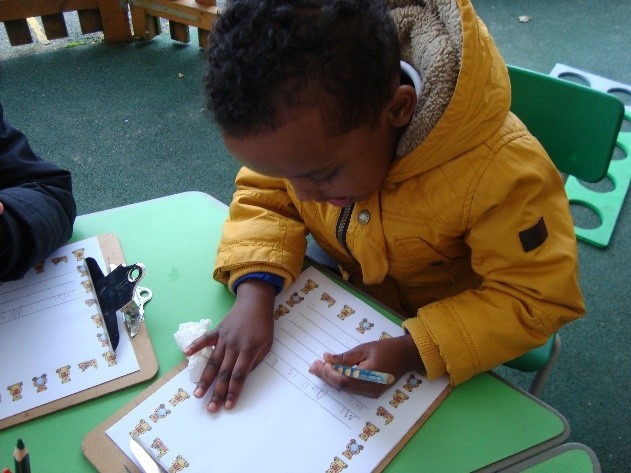 |
The development of children’s language is crucial to their success across the curriculum. To facilitate our children’s language and communication skills, at Brentfield we aim to teach them key English skills – Speaking and Listening, Reading and Writing – across all areas of the curriculum.
We aim to do this through the use of the ‘Art of Teaching Writing’ model. The process consists of each year group starting with a high quality core text to engage the children. The texts are explored in detail using a range of techniques from video excerpts; drama and role-play to language and character analysis. Exemplar texts of the writing outcome are then deconstructed in order for children to understand the structure, language and grammar devices used in that text type. This is followed by modelled and shared writing, which helps to nurture the children’s awareness of grammar, fluency and creativity. Children finally create their own independent pieces of writing by applying what they have learnt. The pieces are finally edited and improved by the children.
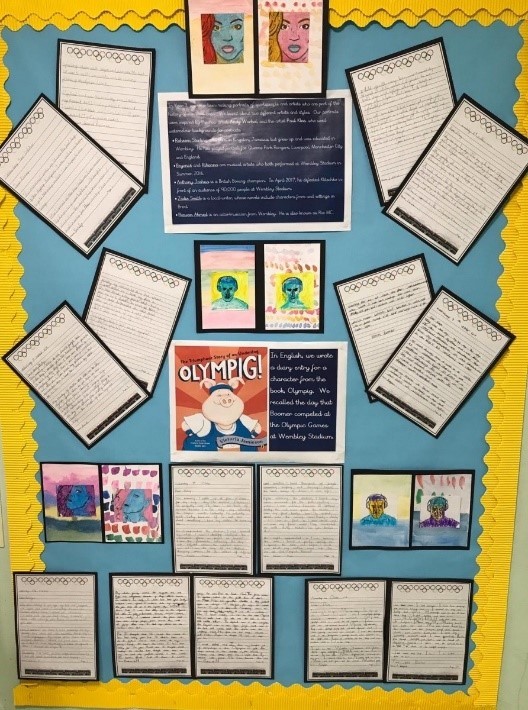 |
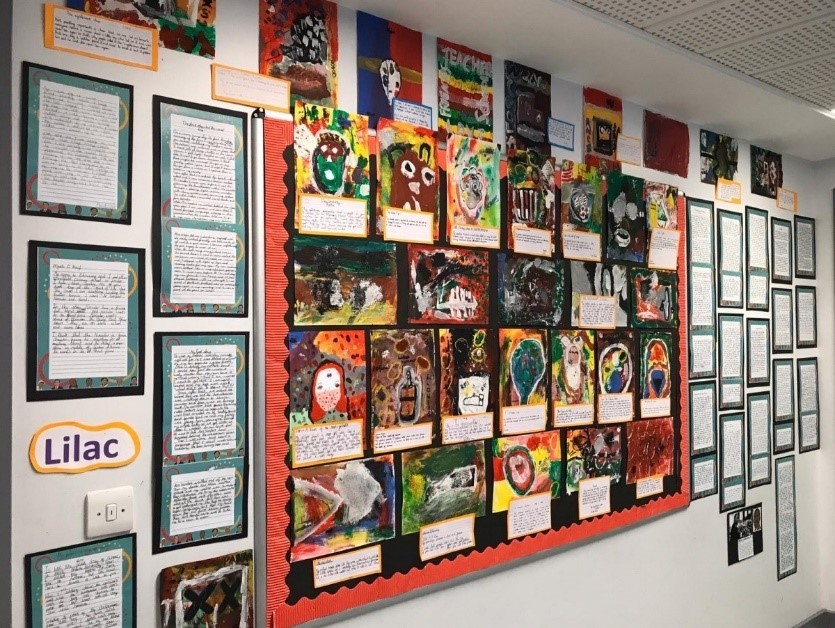 |
Later in each half term, children are expected to apply the skills they have learnt in English to help them produce a cross-curricular piece of writing which is as high in standard as the work produced in their English lessons. Throughout the process, the children are taught to read as writers and write as readers.
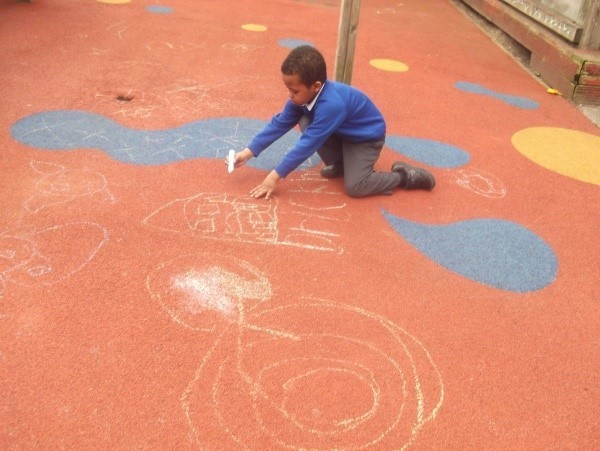 |
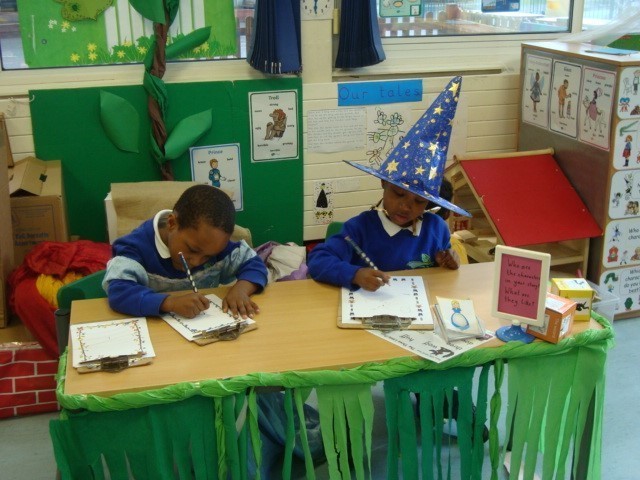 |
In addition, we provide the children with as many enrichment opportunities as we can in order to inspire the learning. A few of the opportunities, which are promoted through the English curriculum, are:
- Book week
- Poetry week
- National writing competitions
- Theatre trips funded by The Royal Shakespeare Company and John Lyon Charity
- Celebrations of Learning
- Presentations
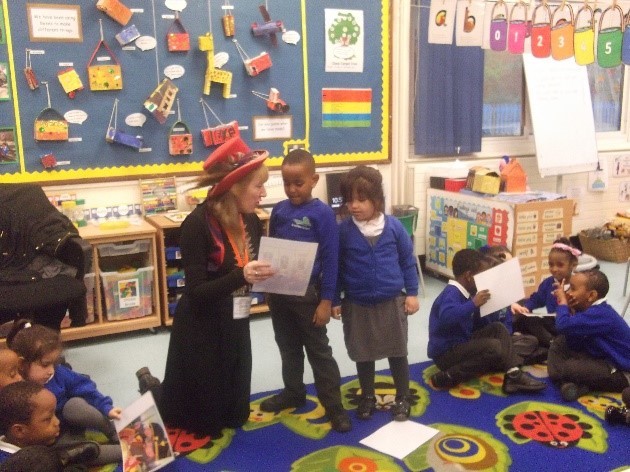 |
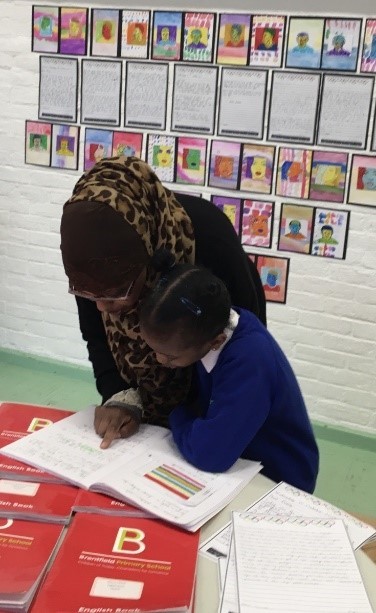 |
The development of children’s reading is crucial to their success across the curriculum and beyond therefore at Brentfield Primary School we intend for all of our children to leave the school as confident and evaluative readers. We want to ensure that all our children become lifelong passionate readers who read a range of different content for a variety of purposes: pleasure, research, developing their knowledge and understanding of the world around them, entertainment etc.
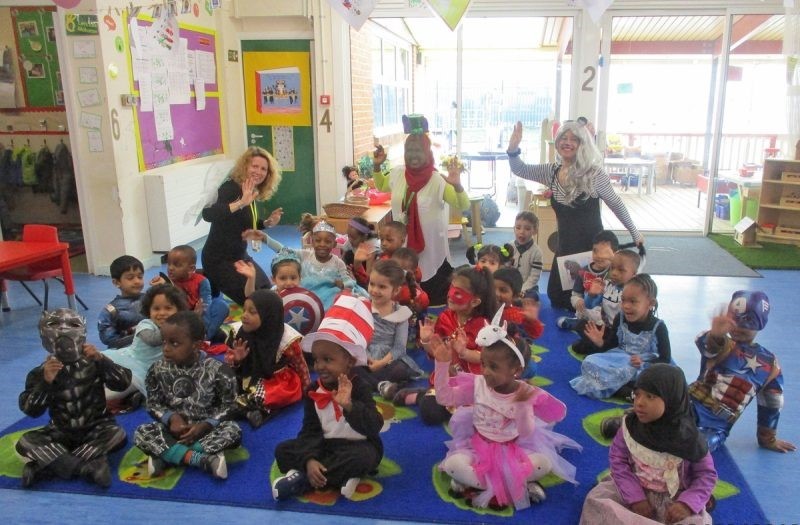 |
Reading begins in the Early Years through Read Write Inc. and continues into Key Stage 1 with Daily Supported Reader. Children progress through the reading bands, with each book level introducing new reading and comprehension skills. There is an emphasis on children learning to decode through daily phonics teaching and developing their sight vocabulary for common exception words.
Read at Home with an Author
Click the links below to hear different authors read their own stories.
- Online Stories EYFS (3-5)
- Online Stories Yr 1-2 (5 -7yr olds)
- Online Stories Yr 3-4 (7-9 yr olds)
- Online Stories Yr 5-6 (9-11 yr olds)
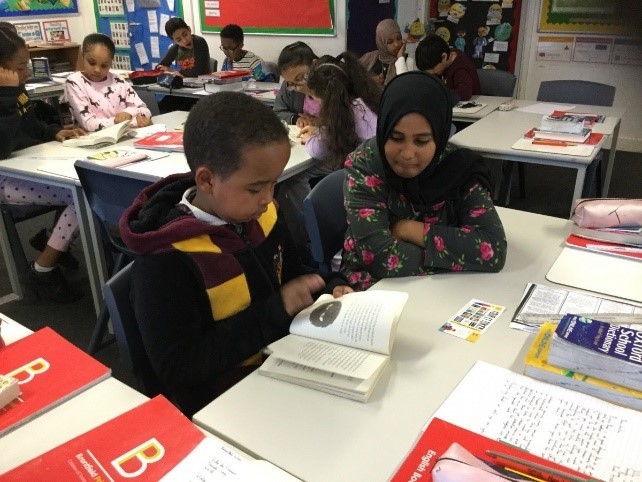 |
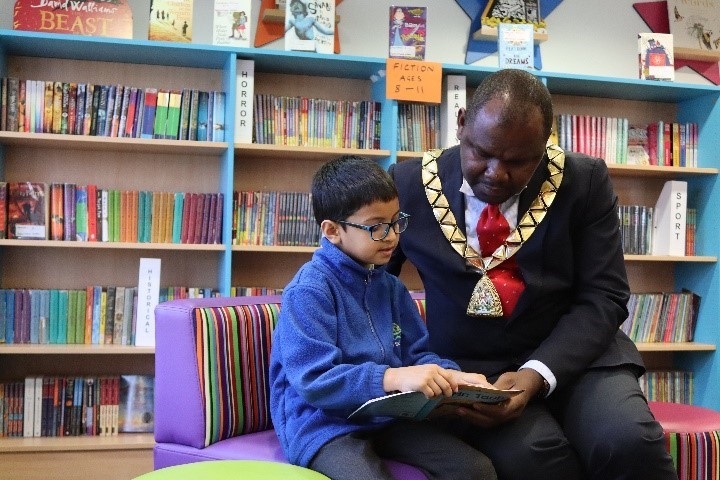 |
Phonics
At Brentfield Primary School, we use the lively synthetic phonics programme ‘Read, Write, Inc. Phonics’ to ensure we get our children reading and writing quickly. RWI supports children’s reading as they learn the English alphabetic code: first they learn one way to read the 40+ sounds and blend these sounds into words (set 1 and 2 sounds), then learn to read the same sounds with alternative graphemes (set 3 sounds).
Phonic books are matched to their phonics knowledge so they can apply their phonics to help them read the words and improve their fluency.
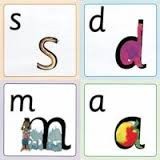 |
 |
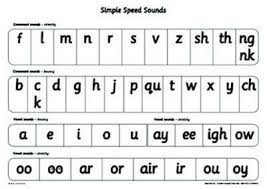 |
When using RWI Phonics to read the children will:
- Learn that sounds are represented by written letters
- Learn 44 sounds and the corresponding letter/letter groups using simple picture prompts
- Learn how to blend sounds
- Learn to read using Fred Talk
- Read lively stories featuring words they have learned to sound out
- Show that they comprehend the stories by answering questions
 |
|
Area |
Link |
|
What is RWI? |
https://www.ruthmiskin.com/en/find-out-more/parents/#lg=1&slide=1 |
|
How to say sounds |
https://www.ruthmiskin.com/en/find-out-more/parents/#lg=1&slide=2 |
|
Reading the stretchy sounds with your child. |
https://www.ruthmiskin.com/en/find-out-more/parents/#lg=1&slide=6 |
|
Reading the bouncy sounds with your child. |
https://www.ruthmiskin.com/en/find-out-more/parents/#lg=1&slide=7 |
|
Reading the diagraphs with your child |
https://www.ruthmiskin.com/en/find-out-more/parents/#lg=1&slide=8 |
|
Sound blending |
https://www.ruthmiskin.com/en/find-out-more/parents/#lg=1&slide=10 |
|
Red Ditty Books |
https://www.ruthmiskin.com/en/find-out-more/parents/#lg=1&slide=15 |
|
The phonics screening check |
https://www.ruthmiskin.com/en/find-out-more/parents/#lg=1&slide=4 |
Reading
In Nursery, Reception Year 1 and Year 2, when children are ready, they take part in the Daily Supported Reading (DSR) programme. DSR is a quality first teaching programme that ensures sustained independent reading opportunities for children in EYFS and KS1.
Each child in the programme receives a daily 25-minute reading lesson at their instructional level, taught by a teacher or trained adult. Children are grouped by reading attainment level using PM Benchmarks, and there are no more than six children in each group.
In Year 3, Year 4, Year 5 and Year 6, we use Destination Reader (DR) to teach reading to our pupils. DR builds on the skills that children have learnt in DSR. It is an approach to teaching reading in KS2 that involves daily sessions incorporating whole class modelling prior to the children applying a series of strategies they have learnt through partner work and independent reading using language stems to help them articulate their ideas clearly.
Firstly, children are introduced to three key learning behaviours, which foster both engagement and independence.
Learning Behaviours
Support and actively listen to others
Discuss and explain their ideas
Take responsibility for their own and their groups learning
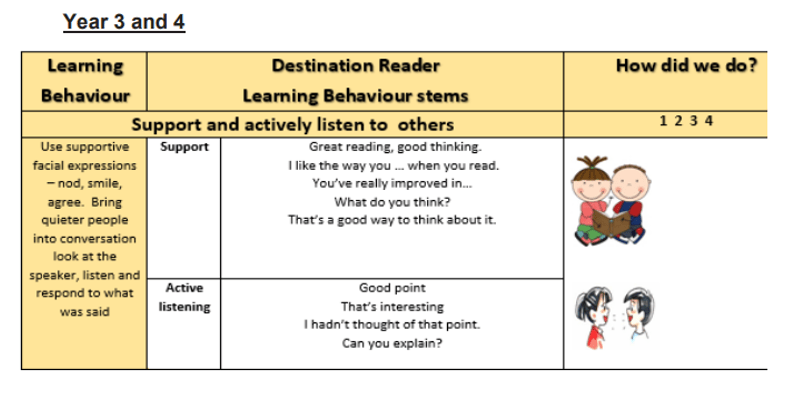 |
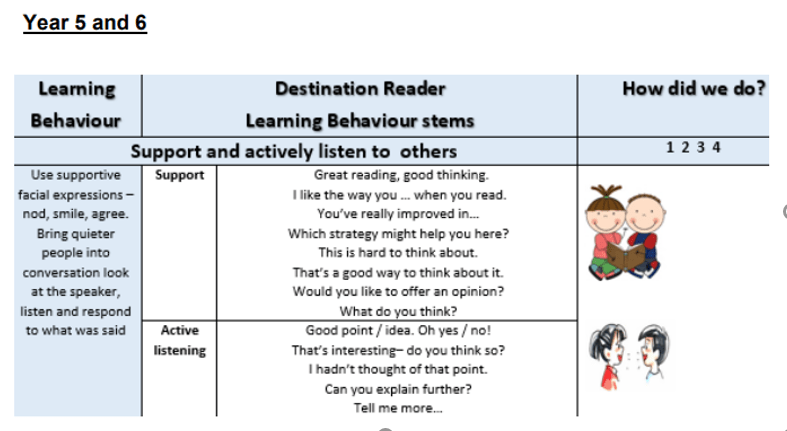 |
Once these learning behaviours have been embedded, the children learn seven key reading strategies in turn which help them deepen their understanding of texts.
Reading Strategies
Predicting, Inferring, Asking questions, Evaluating, Clarifying, Making connections and Summarising
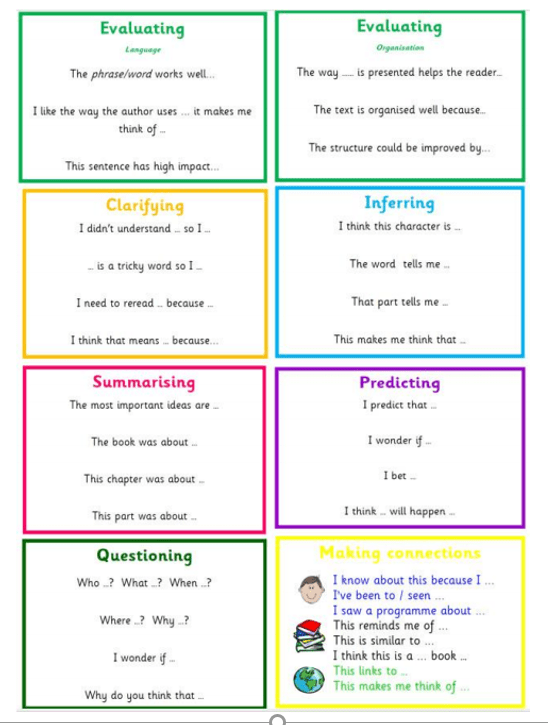 |
|
|
Mathematics
At Brentfield Primary School, we deliver a Mathematics curriculum which prepares our children with the skills and knowledge required to become champions in their future adventures.
Mathematical development in the Early Years Foundation Stage provides children with learning opportunities in two specific areas: Number and Numerical Patterns. It is taught progressively in small, adult led groups in line with children’s level of development. Mathematics is also an integral part of the continuous provision. There is a strong emphasis on mathematical concepts being given a real life context and a practical application using concrete tools, as well as learning through song and play.
In Years 1-6, mathematics is taught covering six main areas of study: Number (including place value, addition, subtraction, multiplication, division, fractions, decimals and percentages), Ratio and Proportion, Algebra, Measurement, Geometry and Statistics. Mathematics is taught daily through a discrete lesson. Teachers plan lessons which are underpinned by Roshenshine’s principles of instruction.
During maths lessons, emphasis is placed on practising and securing number facts to develop fluency. Alongside this, children are taught to be able to demonstrate a deep, conceptual understanding of mathematical concepts. We priorities making rich connections across mathematical ideas to develop fluency, mathematical reasoning and competence. Our children are also encouraged to develop their speaking and listening skills and acquire a rich diet of mathematical vocabulary with which to support reasoning.
Daily lessons are based on The Gradual Release of Responsibility Model. All maths lessons at Brentfield include:
- A Daily Review: recall of key number facts
- Explicit Instruction: the teaching of new vocabulary, and the teaching of the new skill/concept
- Guided Practise: opportunity for children to practise the new skill with the teacher’s guidance
- Independent Practise: opportunity for children to apply the new skill in context independently
- Weekly/Monthly Review: all children end the lesson by recalling previous learning that children may need to access from their long-term memory. This allows for learning to become embedded.
All maths lessons provide opportunities for children to verbalise their mathematical thinking and justify their answers.
The design of our curriculum supports our children to develop resilience and a growth mindset that enables them to build their confidence to reason, problem solve and communicate their mathematical thinking without the fear of ‘getting it wrong’.
Curriculum Documents
Progression in Number and Place Value
Progression in Addition and Subtraction
Progression in Multiplication and Division
Progression in Fractions, including Decimals and Percentages
Progression in Statistics, Algebra and Ratio and Proportion
Subtraction Calculation Policy
The mathematics curriculum is enhanced by:

Times Tables Rock Stars is a carefully sequenced programme of daily times tables practise.
Numbots has been designed with the mastery approach in mind. It is aimed at boosting addition and subtraction skills for all ages of children.
All children from Years 1-6 have logins and we encourage them to use the website at home every day for at least 10 minutes.
|
At Brentfield Primary School, we recognise the importance of science in every aspect of daily life. We aim to deliver a hands on, enquiry based science curriculum; one that ignites curiosity and creates a sense of awe and wonder, while developing our children’s scientific concept of their world. The teaching of science is driven by our science principles:
Children are taught to acquire key scientific knowledge and apply scientific skills through a range of hands on experiences. They are encouraged to develop an understanding of the nature, processes and methods of science through different types of science enquiries that help them to answer scientific questions about the world around them. Children are taught to make observations and conduct simple tests to explore scientific concepts and are encouraged to report and discuss their findings using scientific language that has been explicitly taught. The link between science and maths is made explicit by encouraging children to apply their mathematical knowledge to their understanding of science, including collecting, presenting and analysing data. Science capital is built upon, celebrated and embedded through an annual science week where children further develop a sense of excitement and curiosity about natural phenomena.
Curriculum Documents Progression of Skills and Knowledge
|
At Brentfield Primary School, we believe that Art should be accessible to all children. They participate in projects throughout the year, which enables them to develop their creativity and increase risk taking. The creative curriculum taught in our school, exposes and encourages our children to explore their own and others’ cultural heritages. Studying a range of male and female artists from different social and cultural backgrounds inspires children to be resilient, determined and driven. At Brentfield Primary, we want our children to understand that Art is a subject that should be learnt, practised and celebrated. Our mission is to train our children in giving and receiving constructive criticism- a vital life skill. Being criticised should not be something to dread but rather welcomed and be seen as a chance to improve to achieve ones best.

We aim to do this by exposing our children to creative learning experiences, which will develop their cultural capital. Working with secondary schools, attending class trips, workshops and theatre productions will show our children that the world they live in offers them wide-ranging opportunities. Our goal is to create global citizens who constantly strive to achieve personal goals regardless any obstacles that can come their way.
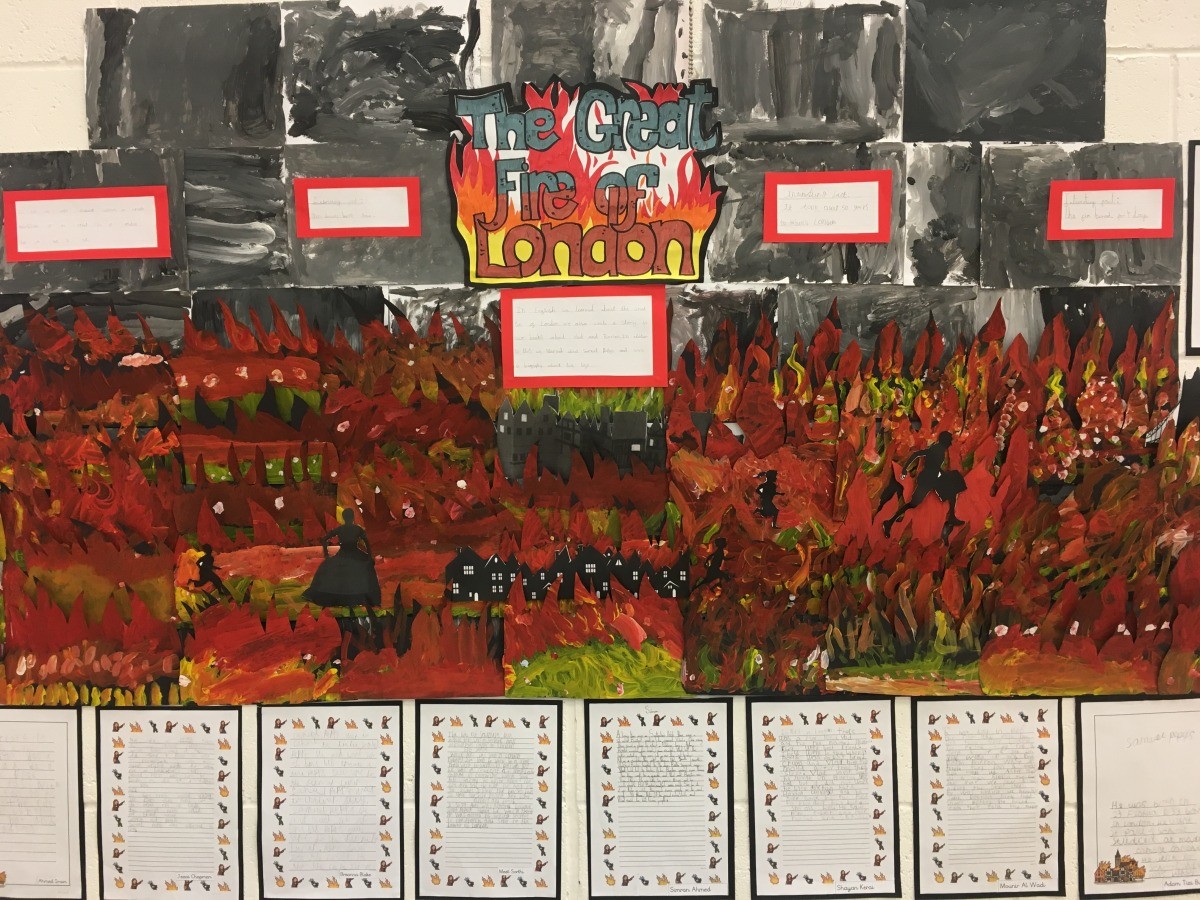 |
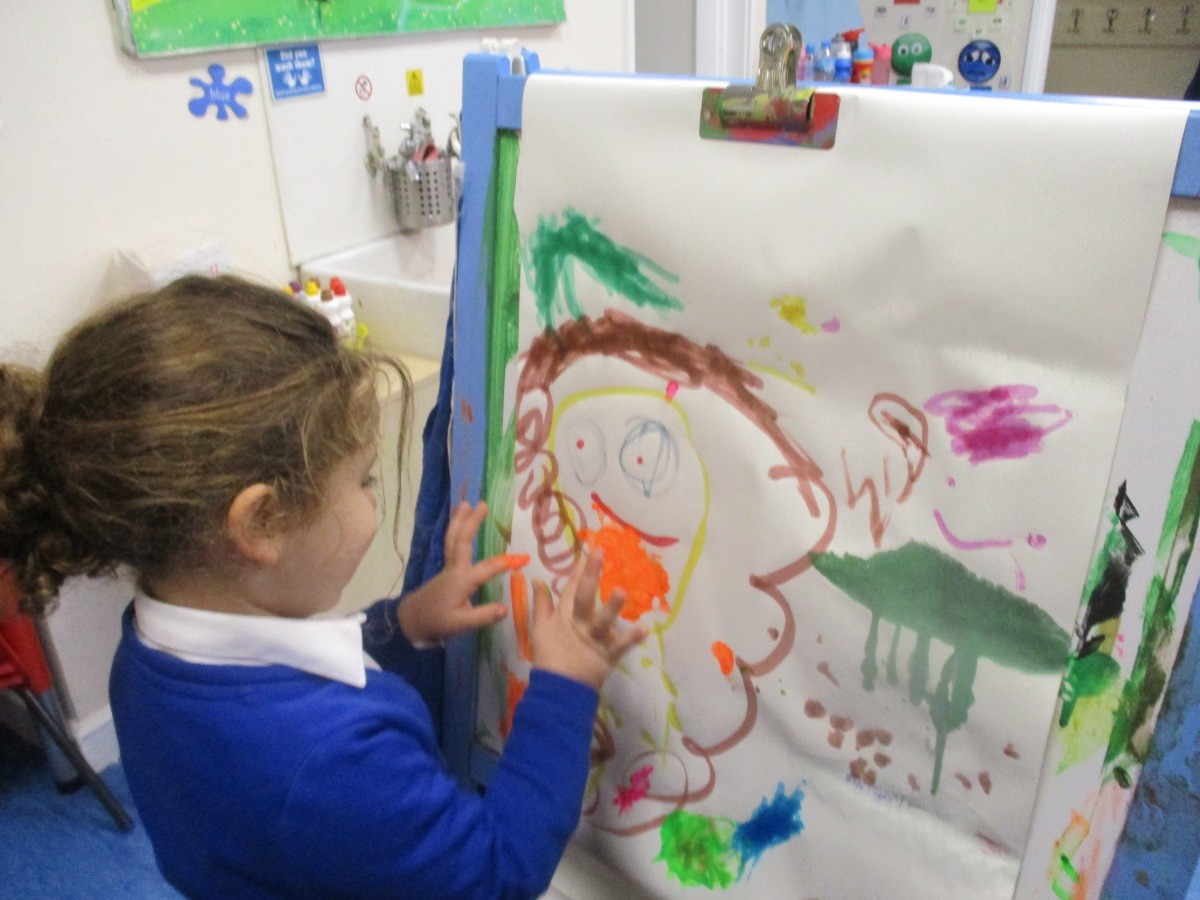 |
At Brentfield Primary School, we deliver a computing curriculum which inspires our children to use computational thinking and creativity ready to become Champions for Tomorrow. The teaching of computing at Brentfield ensures that our children become confident and responsible users of information and communication technology.
In the Early Years Foundation Stage, our young digital citizens develop a greater understanding of the world by recognising a range of technology that is used in their homes and school. Through experimenting with a range of different equipment such as iPads, laptops, cameras and mechanical toys or their own representation of real-life objects, the children begin to speculate on why things happen or how things work and interact with age appropriate computer software. Computing is an integral part of the continuous provision, allowing children to explore the world of technology through structured play. We promote opportunities for children to experience cause and effect which form the foundations for logical reasoning.
In Years 1-6, the teaching of computing is underpinned by the Purple Mash Scheme of Work. We provide our children with hands on learning activities, through the use of laptops, Ipads and interactive whiteboards, where they can practise and develop technical skills in real life contexts. There are opportunities to revisit previously learned skills and knowledge, building on these and applying them to new contexts; this supports our children’s retention and recall of key knowledge and skills. Computing is taught weekly through a discrete lesson.
All Computing lessons include the following:
- Recap of SMART rules
- Revisit of previous learning (skills/knowledge/vocab)
- Introduction of new skill/knowledge (this is modelled) and explicit teaching of new vocabulary
- Opportunity to practise the skill
- Application Activity
By the end of their learning journey at Brentfield, our children will have gained key knowledge and skills in the three main areas of the computing curriculum:
- Computer Science, which underlines the knowledge and skills relating to programming, coding, algorithms and computational thinking
- Information Technology, which underlines the knowledge and skills relating to communication, multimedia and data representation and handling
- Digital Literacy, which underlines the knowledge and skills relating to online safety and technology uses.
Online Safety
We take online safety very seriously and ensure that all our children are equipped to deal with issues that may arise in the digital world. Every year group is taught an online safety unit of work through the computing curriculum and SMART rules are revisited at the beginning of each lesson.
We have clear links with our PSHE curriculum to develop our children’s understanding of what it means to be safe online. Through assemblies, workshops, coffee mornings and visitors, we reinforce the importance of staying safe online, giving children the tools to enable them to work and communicate safely.
Brentfield’s Acceptable Use Agreement is shared with all children at the beginning of each academic year. Online safety is revisited throughout the year in the form of National Safer Internet Day and online safety assemblies/workshops.
The ultimate aim of our computing curriculum is to equip our children with a foundation of knowledge and skills, which they can build upon to become digitally literate and digitally resilient members of society, who are able to live and function in our ever-growing digital world.
Curriculum Documents:
We believe that Design Technology should improve children’s understanding of how the world around them is built and how it functions. We understand that children need to have hands on activities to explore, plan, make and improve their designs. We also know that resilience and the inquisitive nature of each child needs to be developed and valued. Creating a range of structures, mechanisms or electrical systems with their peers, will develop crucial life skills such as teamwork, self- reflection, responsibility and accountability.
We aim to do this by exposing our children to creative learning experiences, which will develop their cultural capital. Working with secondary schools and attending class trips and workshops will show our children that the world they live in offers them plenty of opportunities. We are dedicated to showing children that in the future, they will have the power and courage to design, re- design or rebuild the world they live in.
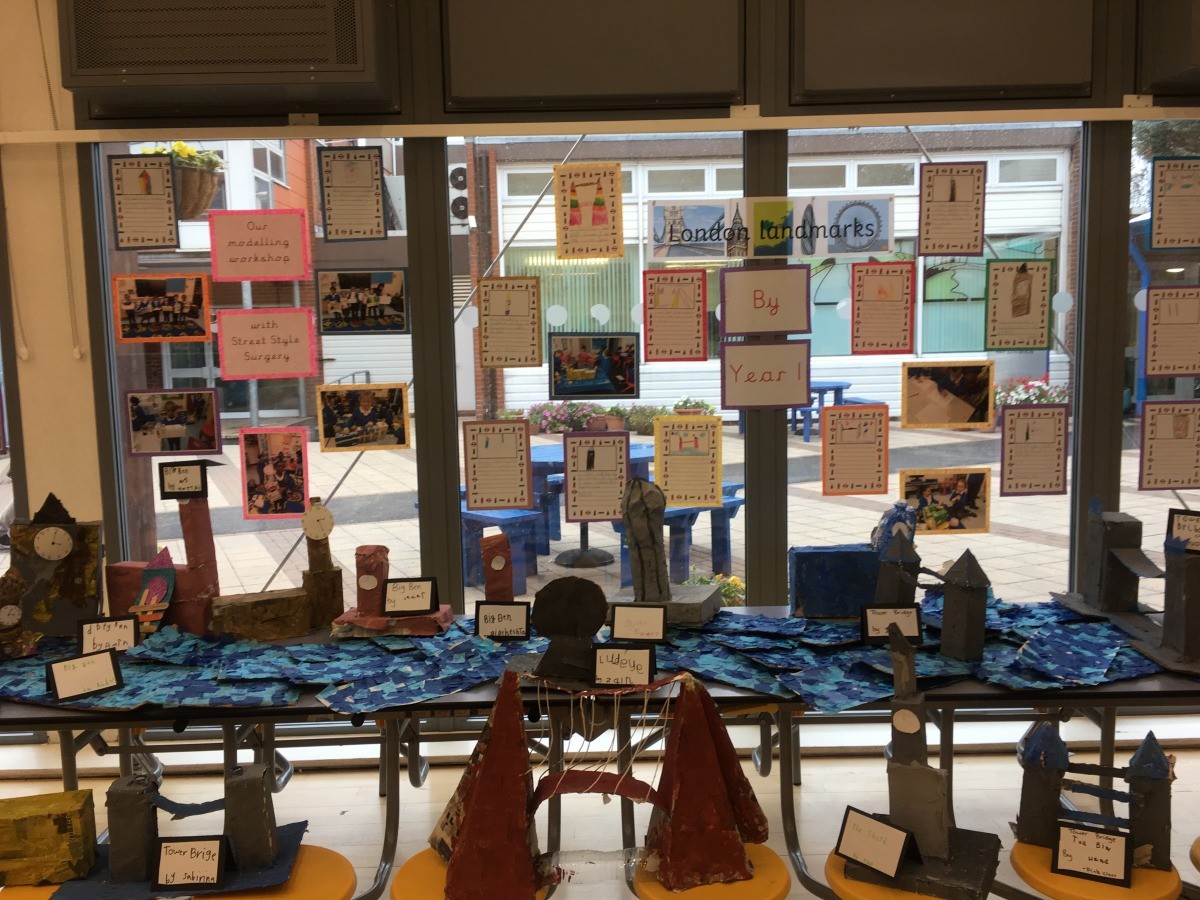
Through the geography curriculum, children’s curiosity and fascination about the world and its people is developed. They investigate a range of places – both in Britain and abroad – to help develop their knowledge and understanding of the Earth’s physical and human processes.
As children progress, we believe that their growing knowledge about the world should help them to deepen their understanding of the interaction between physical and human processes, and of the formation and use of landscapes and environments. Their geographical knowledge, understanding and skills will help them to understand how the Earth’s features at different scales are shaped, interconnected and change over time.
We aim to do this by providing children with opportunities to investigate and make enquiries about their local area so that they can develop of real sense of who they are, their heritage and what makes our local area unique and special. They study communities across the world to gain an understanding of how countries and regions are different yet inter-connected.
Our key aims are for pupils to:
-investigate places
-investigate patterns
-communicate geographically
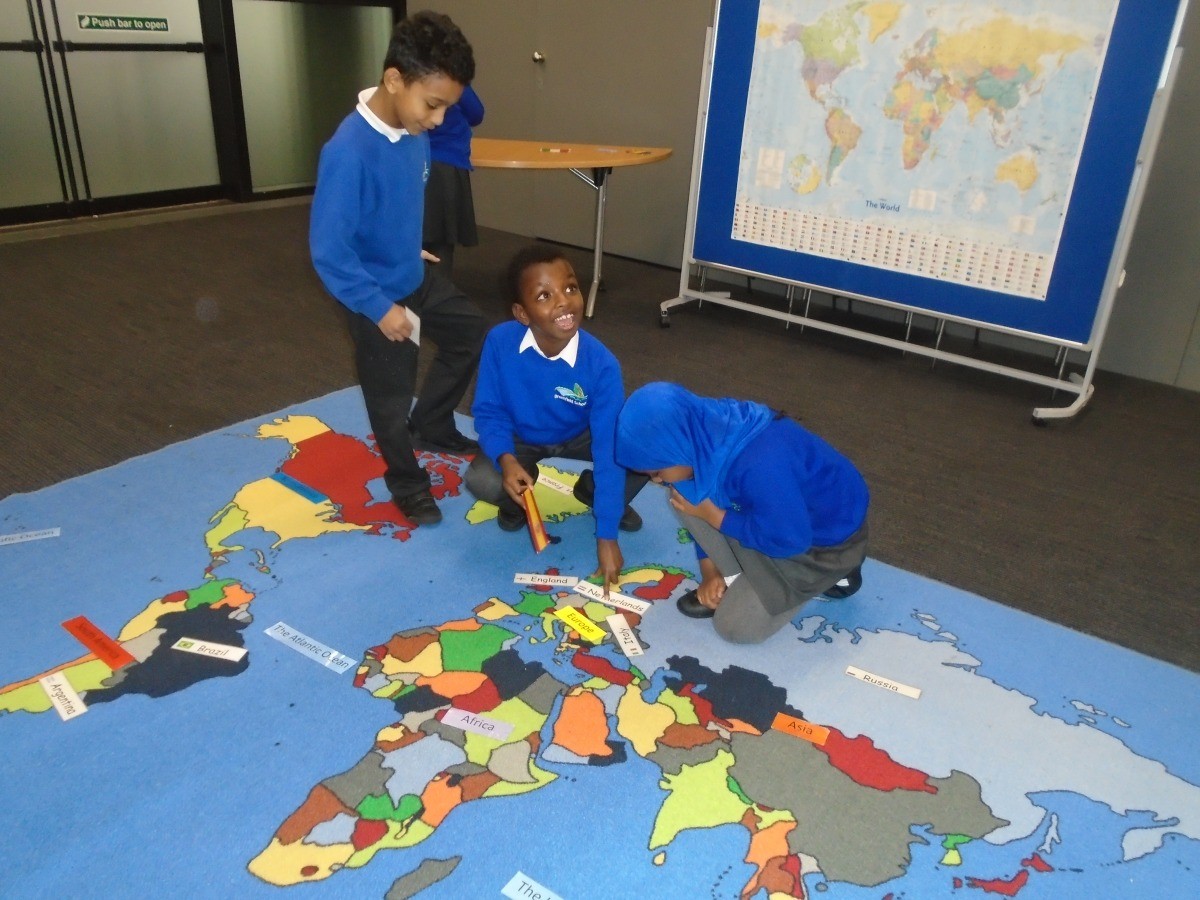
Through trips and visits, children are given the opportunity to put their learning into real life contexts.
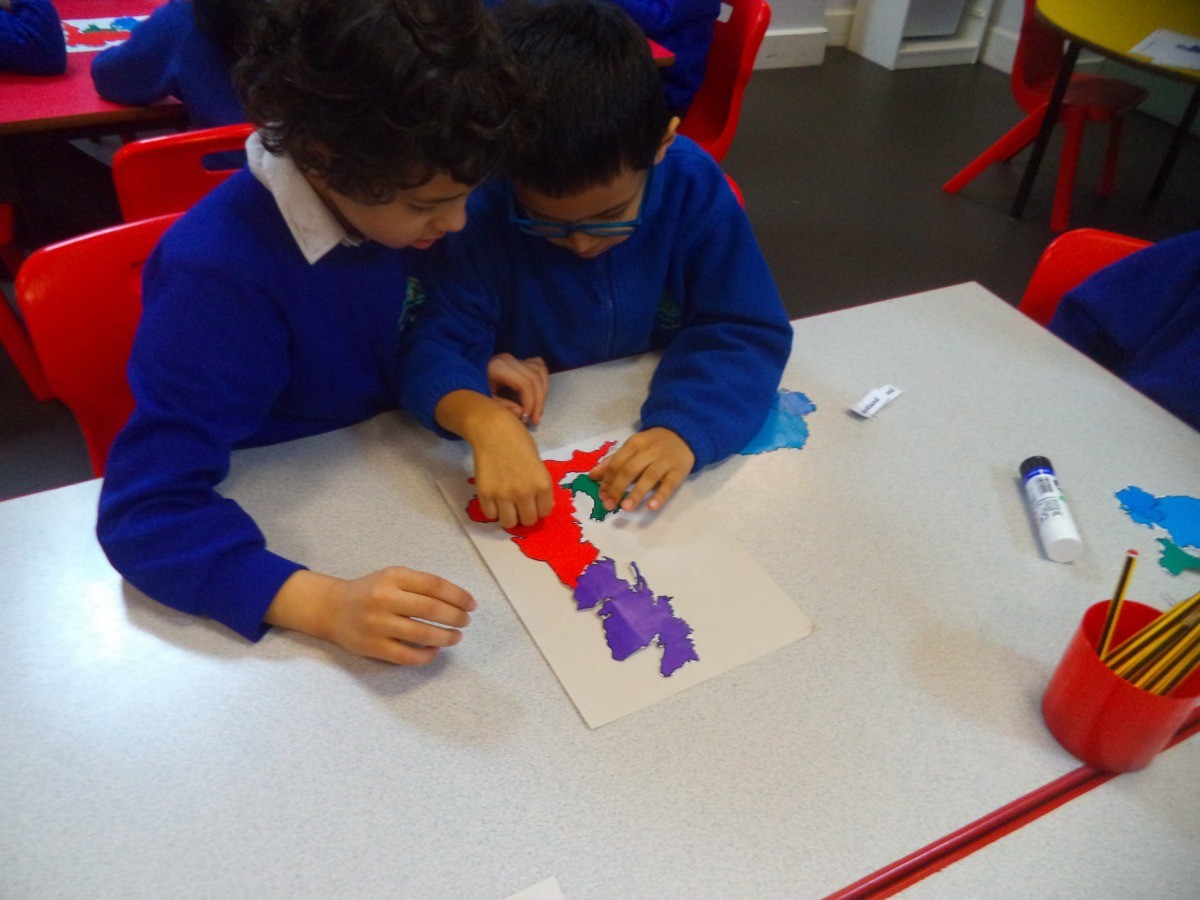
We believe that history stimulates the children’s interests and understanding about the life of people who lived in the past. History enables children to develop a sense of identity and a cultural understanding based on their historical heritage. They learn to value their own and other people’s cultures in modern, multicultural Britain and, by considering how people lived in the past, they are better able to make their own life choices today.
We aim to do this by ensuring that our children are able to ask perceptive questions, think critically, evaluate evidence, sift arguments, and develop perspective and judgement. This will help them to understand the complexity of people’s lives, the process of change, the diversity of societies and relationships between different groups.
Our key aims are for children to:
-investigate and interpret the past
-understand chronology
-build an overview of British and World history
-communicate historically
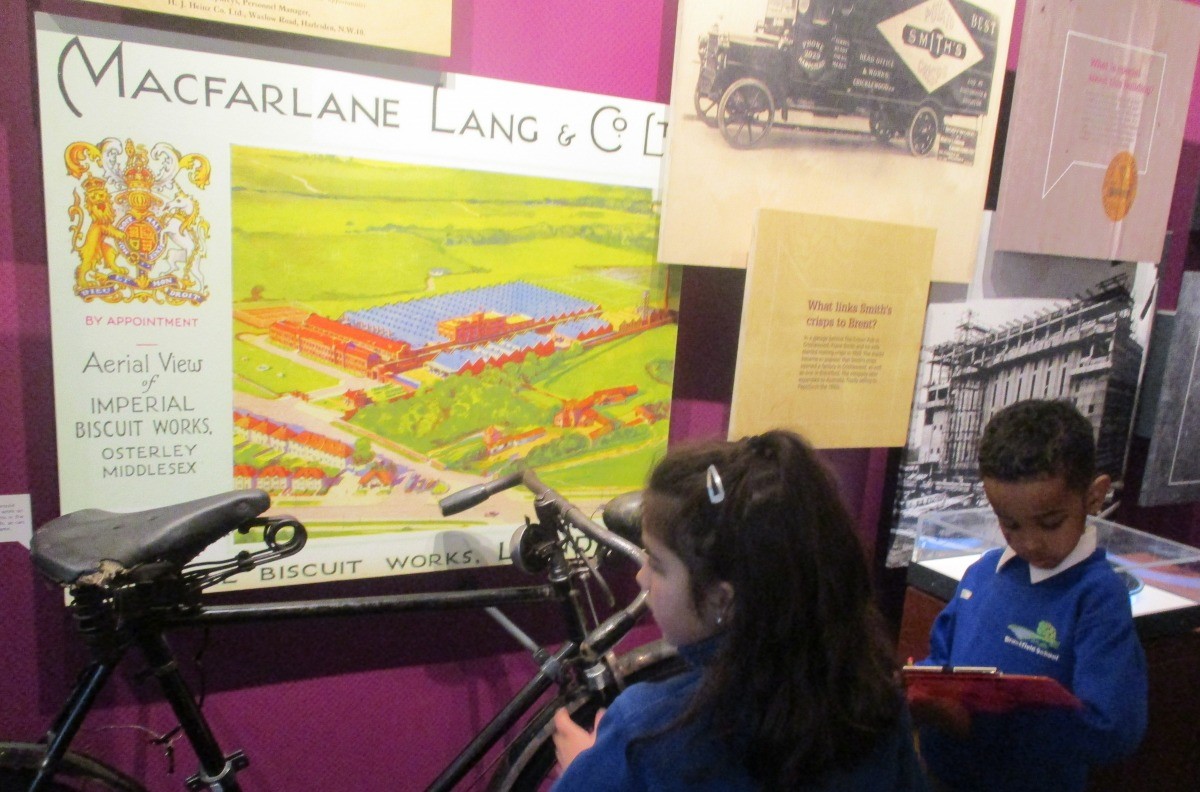
In addition to the themes and topics taught in the classroom, children experience a wide range of trips and visits to develop their knowledge and understanding whilst giving them first hand experience of the topics taught.
Learning a foreign language is a necessary part of being a member of a multi-cultural society and provides an opening to other cultures.
At Brentfield Primary School, our children are introduced to Spanish from year 3 onward.
When children enter Key Stage 2, every class has a timetabled lesson slot each week. The lessons encourage children’s understanding and knowledge of the Spanish language, as well as the cultures and traditions of Spain.
We believe that lessons should enable children to express their ideas and thoughts in another language and to understand and respond to its speakers. It provides opportunities for them to communicate for practical purposes and learn new ways of thinking. Language teaching provides the foundation for learning further languages, equipping children to study and work in other countries, giving them the transferable skills necessary for them to access the wealth of opportunities open to them.
At Brentfield Primary School, we believe that music creates a sense of belonging and pride. Through singing assemblies, children are given the chance to practise togetherness preparing them for the day ahead. Teaching focuses on developing our children’s ability to understand rhythm and follow a beat. Children learn, create and perform their own compositions. They discover and learn how to appreciate different forms of music, therefore, it is important for us that our children understand the structure and organisation of music and can voice their opinions about different styles of music from across the world.
We aim to do this by giving our children opportunities in taking part in singing assemblies, music lessons, class trips, musical projects, school choirs and 1:1 instrumental lessons. Our mission is to create global citizens who know that music can sound different in other countries or periods of history but that it must be appreciated and listened to with equal respect. We want our children to understand that music can be a powerful tool used to assist their well- being in the future, making them well-rounded individuals who appreciate and celebrate difference.
All classes from Nursery to Year 6 have weekly music lessons delivered by Brent Music Service as part of their Music’s Cool scheme of work.
Pupils in Key Stage 2 also have the opportunity to learn an instrument: guitar, keyboard and violin as instrumental lessons as well as recorder and ukulele, which is taught through the Music’s Cool programme.
If you are interested in your child learning a musical instrument, please contact the school office for further details.
We believe that Physical Education (PE) plays a fundamental role in ensuring that all of our children attain optimum physical and emotional development, and good physical and mental health.
Through the teaching of PE, our children develop knowledge, skills and vocabulary in a broad range of sporting activities, as well as developing values and transferable life skills such as fairness and respect. We aim to develop children who will be physically active and can flourish in a range of different physical activities.
The aim of our PE curriculum is to develop children who:
- Are willing to practise skills to achieve high levels of performance.
- Have and maintain high levels physical fitness.
- Lead a healthy lifestyle.
- Employ imagination and creativity in their techniques, tactics and choreography.
- Have a keen interest and willingness to participate.
- Display good sportsmanship.
- Compete successfully at their own level.
- Can swim at least 25 metres before the end of Year 6.
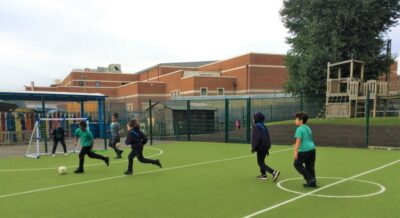
Our PE curriculum offers two hours of physical activity per week. One lesson is taught by a specialist sports coach with class teachers teaching the additional PE lesson each week.
At Brentfield, we understand the importance of physical activity in developing a happy, healthy lifestyle. Through fostering a love of sport we can ensure our children thrive both physically and mentally.
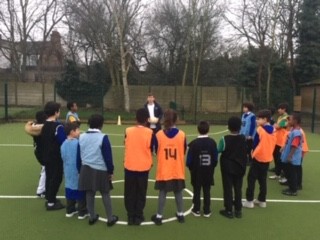
We believe that our children have an entitlement to be safe, well, and healthy. At Brentfield, we aspire for all of our children to embody our B.R.A.V.E. values. Additionally, we understand that in order to ensure the highest standards of academic achievement, children need to have strong foundations in personal wellbeing, high aspirations, an ability to get on with others, tolerance of differences, as we live in a multi-cultural society and finally, but possibly of most importance – an understanding of what to do when things get difficult.
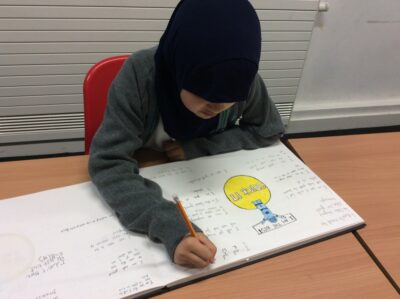 |
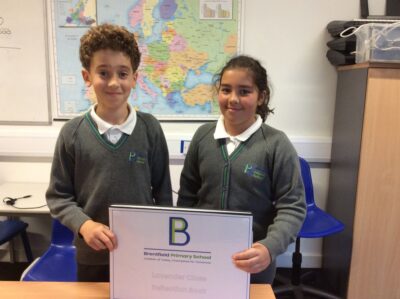 |
We aim to do this through our PSHE and iSpace programmes of study. These are uniquely designed to equip our children with the skills they need to support their own wellbeing for the range of experiences they will face growing up. They promote the children’s understanding of how to keep themselves safe and healthy; how to contribute positively to society and how to form and maintain healthy relationships built on respect for themselves and others in a variety of settings for an unknown future.
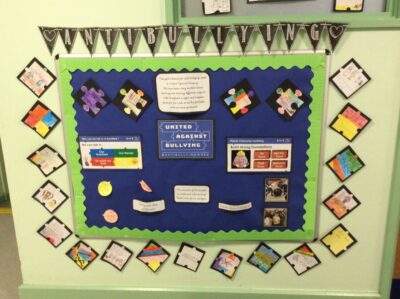
We run additional assemblies, special events and curriculum days to teach other areas for PSHE such as Anti-Bullying week, Harvest Festival, Fund raising days, Money week, Drugs education, Sex Education, Internet awareness, Healthy Eating etc. The variety of approaches used in PSHE help to keep the subject alive and vibrant for the children. We also discuss local and international topical issues, which are relevant to children, where possible. This not only promotes their oracy skills, but also enables them to explore and appreciate a diversity of perspectives while also increasing their engagement and connectivity to a topic.
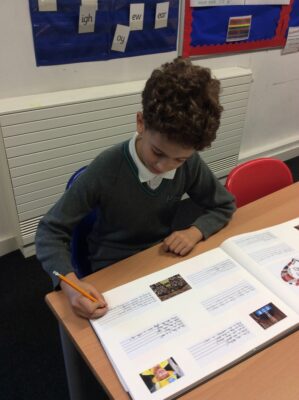 |
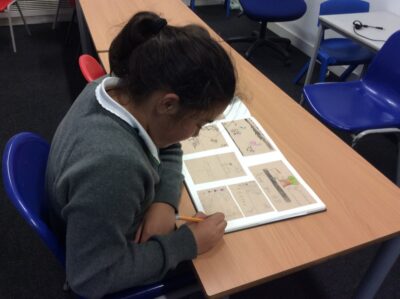 |
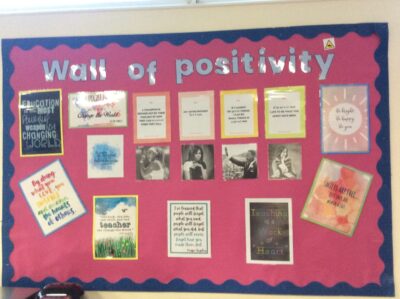 |
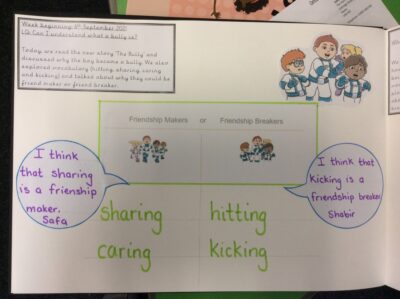 |
At Brentfield, we believe our pupils have an entitlement to be safe, well and healthy. Therefore we feel that in order for our pupils to leave our school fully-equipped for the next stage of their lives, they should receive a well-rounded education. For this reason, the relationships and sex education children receive, closely relates to our B.R.A.V.E. values as these are our key principles.
Relationships, Sex and Health Education
Relationships education focuses on teaching the fundamental building blocks and characteristics of positive relationships. Children are taught about healthy relationships and explore how to keep themselves and others safe in a variety of different situations and environments, so that they are prepared for the future. Units within this area include:
-Families and people who care for me
-Caring friendships
-Respectful relationships
-Online relationships
-Being safe
Our sex education focuses on:
-Preparing boys and girls for the changes that adolescence brings
-How a baby is conceived and born
RSE is predominately delivered within PSHE, however biological aspects of this unit are taught within the Science curriculum, and other aspects are included in Religious Education (RE). RSE sessions are delivered to pupils in a nurturing and respectful environment by their class teacher.
For more information, please view our: Relationship and Health Education Policy
Our school council empowers the children, develop their understanding of democracy and build on their self-confidence and belonging to their school and we are working towards achieving the Silver Award for both Healthy Schools and TfL Stars Travel Plan.
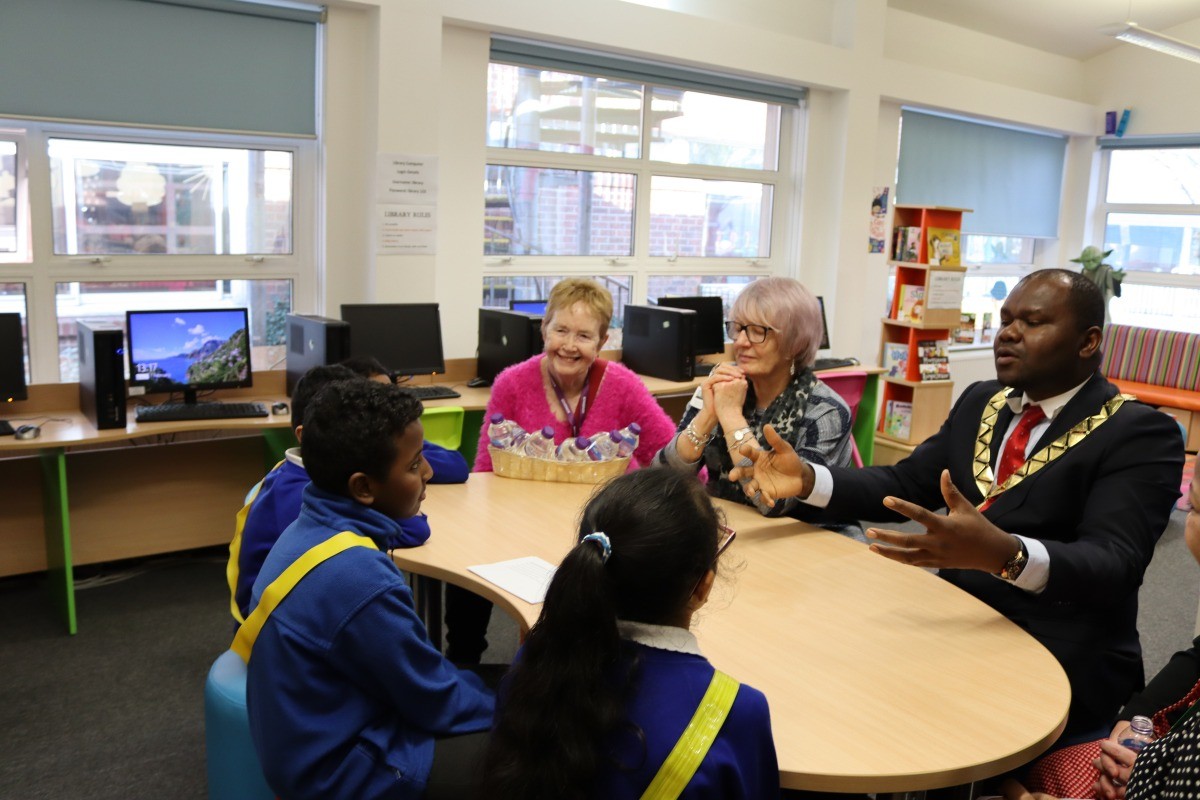
As part of our PSHE curriculum, we deliver the iSpace Wellbeing programme. It offers the language and tools to help children, teachers and parents start the conversation about children’s mental health and emotional wellbeing. The programme also satisfies the government’s statutory requirement for Relationships and Health Education.
iSpace aims to enhance confidence, capability and creativity and to boost emotional intelligence, resilience and self-worth. The framework helps to prepare our children to live life ready.
Through visiting different “planets of emotion” over the course of the year, children will be exposed to different strategies and tools to help them overcome changes and thrive despite failure. These planets are shared with children as part of launch assemblies and developed within lessons. It is also embedded into the daily routine for all children from Reception to Y6.
Please see below for examples of visuals and language we promote and encourage our children to use to discuss their emotions:
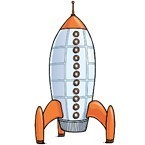 |
Has your rocket launched or is it on the ground? |
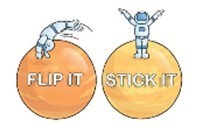 |
How can you flip that around? What do you want to stick with and what do you want to flip? |
 |
Check in with your backpack. How are you feeling? |
 |
Ask for help |
For further information, please visit the iSpace website https://ispacewellbeing.com/
Religious Education forms part of the basic curriculum in accordance with the Education Reform Act of 1988 and is taught using the Brent Agreed Syllabus.
Religious Education allows the children to learn about the major religions of the world and reflects the wide range of religions that are found in our diverse school and local community, as well as society as a whole. It stresses the importance of religion in the lives of those who believe and teaches children to respect and value the beliefs of others. This knowledge and understanding helps our children to live, grow up and participate in our diverse society with an understanding, caring attitude towards others.
Through Religious Education lessons, we aim that children will:
-understand the beliefs and teachings of the major world religions
-understand how beliefs are conveyed
-understand values
-understand lifestyles and practices
-be able to reflect.
Learning is enhanced by visits to places of worship in our community and further afield.
